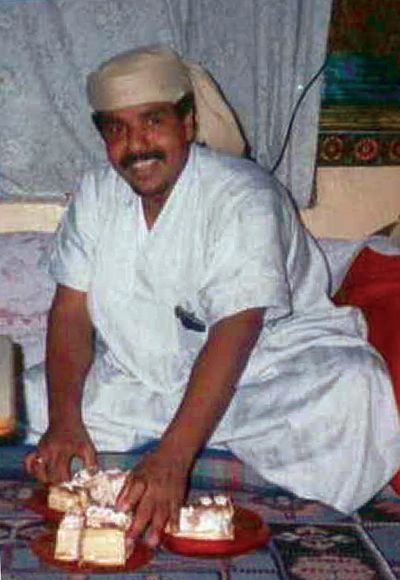Bin Laden driver’s conviction reversed by federal panel

WASHINGTON – A federal appeals court’s decision to toss the conviction of Osama bin Laden’s former driver could have implications for future prosecutions of terrorism suspects.
The driver, Salim Ahmed Hamdan, was detained by U.S. troops in Afghanistan in November 2001 and sent to Guantanamo. In the first U.S. military war crimes trial since World War II, a jury of six military officers found Hamdan guilty in 2008 of providing material support to terrorism and sentenced him to 5 1/2 years in prison.
But the U.S. Court of Appeals for the District of Columbia on Tuesday threw out that conviction, stating in a 3-0 decision that material support for terrorism was not proscribed as an international war crime until Congress passed the Military Commissions Act in 2006. Since Hamdan worked for bin Laden from 1996 to 2001, he cannot be punished retroactively, the court concluded.
“Indeed the Executive Branch acknowledges that the international law of war did not – and still does not – identify material support for terrorism as a war crime,” wrote Judge Brett Kavanaugh.
“If the government wanted to charge Hamdan with aiding and abetting terrorism or some other war crime that was sufficiently rooted in the international law of war at the time of Hamdan’s conduct, it should have done so,” Kavanaugh wrote.
Hamdan’s legal vindication is the latest challenge to the controversial war courts set up by President George W. Bush’s administration after the terrorist attacks of Sept. 11, 2001. The Yemeni driver also was at the center of a landmark 2006 Supreme Court case that struck down the war courts as unconstitutional, forcing the Bush administration to revise the system and try again.
Tuesday’s decision dealt another blow to the war courts by upending material support for terrorism as an offense triable by military commission.
Hamdan’s attorney, Joe McMillan, a lawyer with Seattle-based Perkins Coie, said he regards the ruling as a victory for the American justice system.
“We see it as an important statement that the U.S. must conform to the rule of law as it goes forward, even in times of perceived national emergency,” McMillan said.